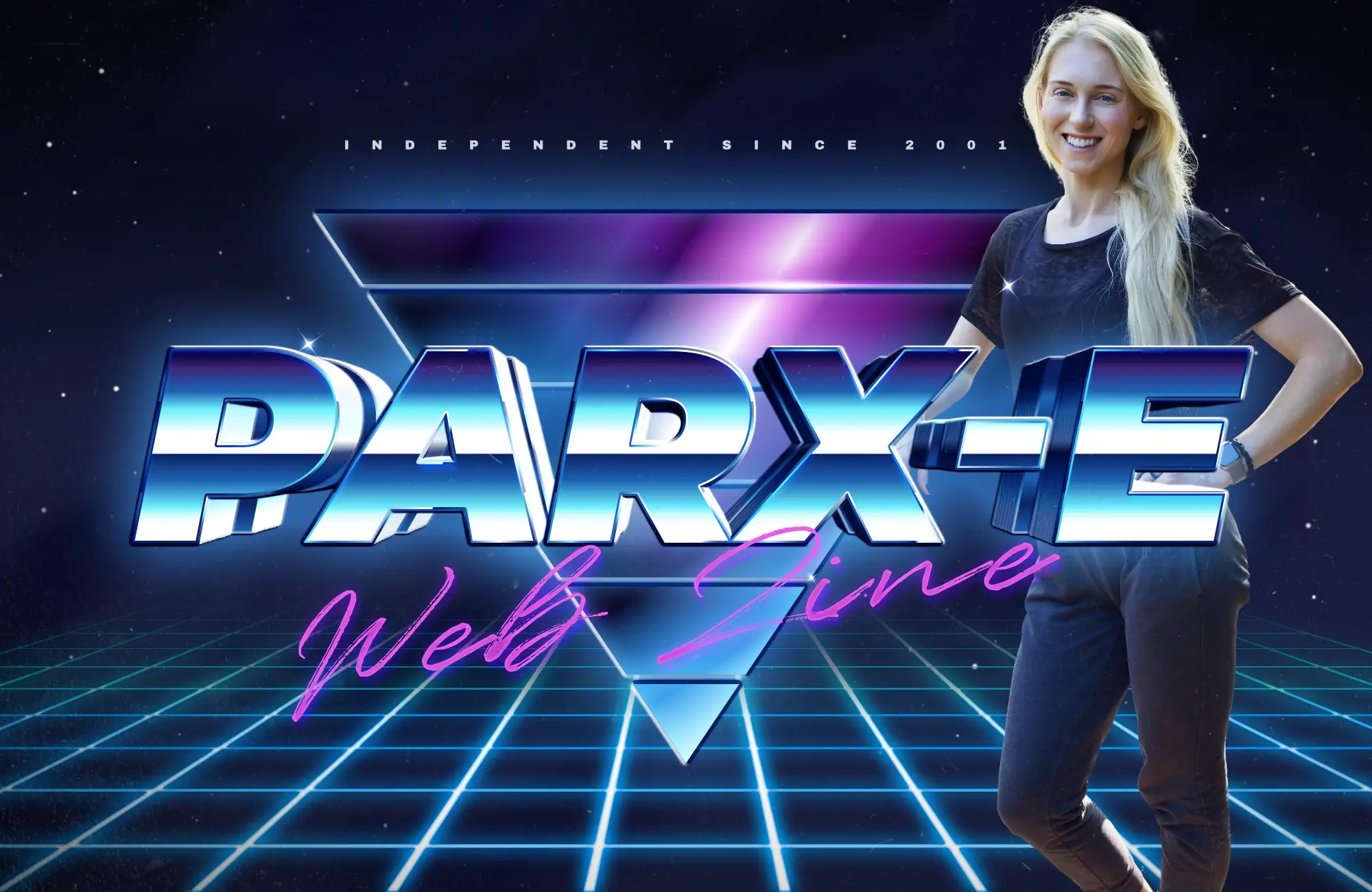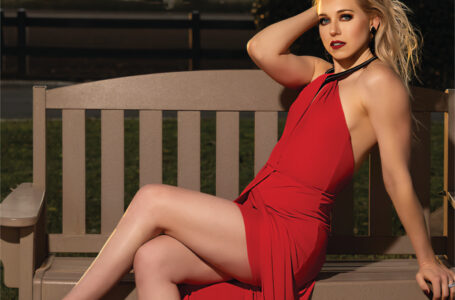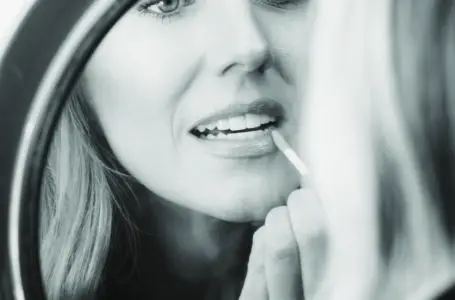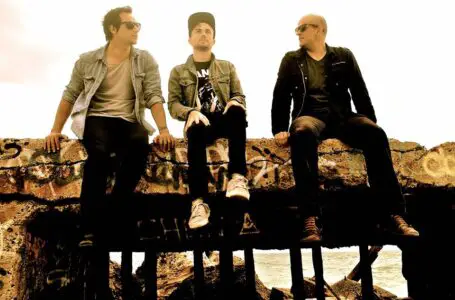
KILDTV
When I heard about this film, it got me wanting to know more as some body who loves a good horror picture. I am happy to say this film ticked the boxes and I knew I had to find out more. So this is what the film makers William Collins the director and Channing Whitaker the screenwriter had to say about it all.
1 & 2. What was the inspiration behind the film? How long did it take to write the script?
Channing Whitaker (Screenwriter) – I believe there were two ideas that were the seeds for KILD TV. The first, right out of college I went to work for a TV station which had actually combined two local network affiliates during a corporate buy up. Few viewers knew we were both stations because they were with different national networks. As we finished one network’s news, the other network’s anchors were standing by waiting. We’d turn the camera’s around and 5 feet away had the other network’s set. We didn’t have a horror-host show, but it made me think how interesting it would be to explore that scenario, not between two news shows, but instead between an upstanding news program and a creepy, over-the-top, horror show. Second, early on I had the idea of the horror show cast and crew being in trouble, going on the air and asking for help, but having a “boy who cried wolf” scenario where their viewers are so used to outrageous antics they don’t believe the pleas are earnest. The rest of the story grew from there.
I had written the first draft over about three months, and I had pages of notes and ideas with the intention of revising and rewriting a finished script. However, I had a previous professional relationship with the rest of the production team and they were looking for a project. I ended up pitching it to them before I would have called the script finished. They wanted to go forward with it, which resulted in William and the producers having a chance to weigh in with ideas and shape the subsequent rewrite and polish, which took another three months, so about six months in total.
3. How long was the shoot and what challenges did you face when making a low budget film?
Collins (Director) – 19 days of grueling 5PM~5AM production. The TV station was a set, and was created from scratch, all equipment had to be hooked up and trucked into the open space that was to become the labyrinth of KILD TV. Among our challenges was keeping the studio in order; part of the TV Station was in the Eye Candy Studio space, and the other section was downstairs in another suite 500 feet away. Yet they often ran from one spot to the other having to connect the two seamlessly. This required that we create a key map for all cast and crew to understand how we were organizing the production. All effects were practical minus one stabbing, so coordinating and inventing the best methods for the on screen FX was also a big challenge to keep in order. Luckily Hawgfly Productions of Austin, famous for Dusk Till Dawn and many other films, did a fantastic job and were always on top of it, reducing that stress. I think the night schedule was the biggest challenge. I lost 10 lbs. during the shoot (and I am 160 lbs. and 5’10”), so a lot of weight loss. I was sleeping 3~4 hours as a norm for 19 days, it was like being in boot camp. I remember thinking how much I would appreciate the simple act of sleeping a full night as soon as the shoot was over. And I did too!
4. How was the cast chosen for the movie?
Collins (Director) – Our production company is always hands on the casting process. We selected the cast with input from the key production team. Producer Michael Muscal, Executive producer Bryce Cunningham, Art Director Yun Kum and myself were always involved and I think it has made us very good at this. We typically reach consensus on the selection process before we move forward. Ultimately the final decision was up to me, however there was never an issue, I agree fully with the cast we’ve selected and consider myself very lucky to have worked with them.
We originally wanted the venerable Bruce Campbell for the lead roll, but it was not meant to be, and luckily we had the incredible talent of D.C. Douglas available, so as soon as he accepted we brought him to Houston. While he may disagree with me, I think D.C. Douglas was meant to play Dr. Perseco his whole life, and after having made KILD TV, I can’t see any other actor playing this role. As mentioned before, we were lucky to have landed such talented and beautiful people.
Astrea Campbell Cobb is stunning. We hired her originally for a short film we did in early 2012 called The Rolling Road (available on Amazon). She shocked us at that time with her lascivious kissing scene and just being her delicious self.
Dan Breverman was somebody I had kept in my files for years. I first saw him in a local film The Waiter. His energy and facial expressions were magnificent in that film. Later I saw him at a local comic convention and I asked Dan for a head shot. I told him then (2009) “I will call you soon, we are working on something and I know I want you in it”. He said – Awesome, love to do it. etc. In the end when the casting started for KILD, I pulled his head shot from my dusty files and he became Ira. While I expect my actors to bring their A game to me, Dan in particular was ready to walk through molten lava for his character. As expected his energy was incredible and he was always ready for more. He had to put a difficult contact lens into his eye in addition to one hour of prosthetic make up each day. No problem!
Jared Dorek was somebody I had done a short with in the past, The CareTaker. The CareTaker is something we are working on for our future film pipeline. I expect The CareTaker to be huge when it releases. We have a full comic book of the story drawn out and we are just about ready to launch that. Jared did an extraordinary job on our short: which won many awards, so I loved that he was excited to take on the part of Lucas.
Heather Williams, our local Aussie, and (I think the Australian Apprentice runner up), became Geneva with all the strength and gusto we hoped for. She played the character wonderfully and beautifully. We had to tone down her looks for the part; she is a stunning Australian platinum blond.
I remember asking her when she came to the casting call, “I have to know if you can do a kissing scene with our lead actress, and that you can make it hot”. She said – “No problem, I like the girls”. I was not sure how that would translate, but when the scene had to be made, Astrea and Heather did such a hot scene you could hear a pin drop on set. In the end we had to remove some of the scene because it became too hot for what it was supposed to be. Heather is a total pro, and a wonderful person; you don’t always get such a package.
Aleeha Rogers is known for playing one of the pretty slave girls in Tarantino’s film Django. During filming her scream (on the film) is bloodcurdling and so loud, we had to turn it way down for the post. Aleeha was incredible and created a unifying presence for the ensemble as well giving the audience a surprise on the film.
Grace Johnson who played Dena, was also a lucky break for the production. Grace was taking care of her father at the time in Houston, which is the only reason she was available to audition for the part. Known for playing opposite Bette Midler on the film Beaches as a child actor, Grace is a Hollywood insider and a celebrity. All grown up she is a powerhouse on screen. I did not realize what a talent we had landed, until we started shooting. Even during post I kept finding wonderful details she added in her performance to enhance and improve her part.
Obviously I can’t say enough good things about our cast, even if I devoted my entire interview to talk about them it would not be enough. But don’t take my word for it, see the film, you will love it.
5. What did you learn from making the movie?
Channing (Screenwriter) – I learned to be more flexible. Of course filmmaking is collaboration and the writer has to be ready for the director and the actors to bring their own ideas, but I found on this project I had to be willing to help adjust the script to the logistical challenges of the production. One example was that the script called for a small window in the set that played a part in a couple scenes. As we were going into production we negotiated with three different locations we thought would work for the TV station setting, and only ended up locking down the final location a few weeks before the first shoot day. However, it just so happened the location we got didn’t have any small windows. We had to brainstorm and adjust the script to fit the location we had, and do so very close to the start of shooting. There were probably another dozen or so details like that.
Collins (Director) – There are too many lessons to mention. I think the quality of the production team can’t be overemphasized. There are professionals, and then there are professionals. In the end, as a director, when production cuts costs on a member or hires a lesser experienced person you end up picking up the slack. There comes a moment when you feel like a loony toons cartoon character running in every direction trying to save the ship. I can’t say how much you have to be thankful for good people on set. If you have some great people on set, go and kiss and hug them. You’ll thank me later.
6. How important is having the right promotion material for the film like artwork and so on?
Collins (Director) – Absolutely critical. My partner Yun Kum had designed the coffin piano before we designed our set. She had come up with a logo for KILD TV before we had the script complete. Our Facebook and website were up and running before we were pre-production. Michael Muscal and I spoke about how we would promote the film before we shot one frame. Also Bryce (EP), and I took the time and expense to investigate pre-selling the film at AFM before the final edit was done. Everything related to marketing is critical because today, each person you try to reach is faced with a torrent of noise. The consumption of media today is like trying to drink from a fire hose. Think about yourself, how many areas of interest can you keep up with in a realistic manner? You can be great, and not be seen or heard. Remember that for every great film there are a million bad ones. How do you get above the noise level? Work it! Social Media, promotions, websites, parties, advertising, etc., etc. Non-stop, every day, all the time. You have to become a marketing machine…. or hire one.
7. Are you happy how the film has been received?
Collins (Director) – Absolutely, the fans are awesome and they get it. We need this word to spread and more people to hear and see the film. The fans of the film are getting the word out and we can’t thank them enough for that. We made the film for the fans, and if they respond with their wallets we will make more, nothing could make me happier.
8. What is next for yourself?
Collins (Director) – We are in development for a film called Shoplifters starring Shirley MacLane, Ann Margaret and Christopher Walken. It’s a PG comedy and we are actively seeking investment on a PPM (contact us if you are interested, see IMDB). We have more than half our money but we remain short and the clock is ticking. We are also developing The CareTaker, a dark superhero type of psychological thriller in the likes of Watchmen but darker (major star in target). We also have a Phsychomatics, a story about an autistic kid who is given gene therapy and it leads to a big surprise and The Rolling Road a TV series about a twin trying to make sense of an amoral world see trailer. We have the future of entertainment, but we need financing and support. I can’t wait to do all these projects.
9. How did the score come about for the film?
How did you get it to work with the movie? Collins (Director) – I am a fan of Danny Elfman from the early days of Oingo Boingo. I also really like the work he did for Beatle Juice. If you play that film you will notice a lot of similarity to the style of our music on KILD TV, particularly with the accentuations of Dr. Perseco. But I don’t want to take the spotlight from Nicholas Gati who did a superhuman job on the score. When I had the edit, I took the time to pre-score the film using other film music and had a pretty good idea of where to hit what and how. So Nicholas was working from a clear prospective of when to put crescendos or what type of music edit I was after. But it was Nicholas all the way getting that to work and outlining music passages that are delectable on their own. At some point we plan to release the music score of the film. I think fans will be really surprised how amazing the music really is. It’s not everyday you get an orchestral score on an indy film. The sad part was that we could only use parts of the score. When you hear it on its own its really just wonderful, great sounding music.
10. How do you think social media has played a part in getting the film out there?
Collins (Director) – I think it is the future of marketing. The fans keep social media close to them; they use it to know what is real and what is not. We strived to make a great film, and everybody on the film did their best, so now it’s up to the fans to respond and tell their friends that this is worth their time. To me social media is a time saver. There are so many time vampires, and social media is a great method of keeping them away.
11. How do you feel about this proposed Screening Room service where you will be able to watch the latest blockbuster at home without leaving the house to see it at the cinema?
Collins (Director) – I think it is a bit upper crust. If I remember right its about $300 bucks to set it up and $60 bucks per film or similar. As a filmmaker and avid film fan I love to curl up in my home theatre and watch great films, but I still go to the movies regularly, because I like to see the reactions of people or the non-reactions. I want to see and experience the outing of going to a movie. While I hate the people on their phones as much as the next guy, I don’t think the experience has gotten so bad that I would pay that much to avoid going to a theatre. Also, I can’t expect to watch films like Gun Woman at my local theatre; those I see at my home theatre, but I bet they won’t be on the Screening Room Service.
12. How important is it to you to have physical copies of your films (E.G. DVD & Blu-Ray) and make them something worth having?
Collins (Director) – It is very important to me and the production team to provide our fans a tangible, highest quality version of KILD TV on a BR and DVD. We’ve made a very high quality BluRay that contains a big huge file with minimum compression and so it takes up most of the disk. The disk is a glass master so again the highest quality possible. The audio is DTS raw, which again is the highest quality possible on a BR. You’d have to get a huge Hollywood film to have that sort of quality on a BR. However the highest quality version of our film is 4K resolution and 10bit. There is (at the moment) no way to provide that to our fans in 4K tangibly unless we stream it.
The plan at this point is to create a website that has the typical behind the scenes information and photos, videos and documentaries. We will do this because we realize that its best to keep the disk provided as pure high quality film/audio. In the end the highest quality version of the film will live on line. We anticipate that KILD TV will be released on VOD on May 5th, and for example we heard its likely that Google Play and Bell network will have it available in 4K with 5.1 audio. Many on demand channels will offer it at a higher quality than most festivals are able to show it; 4K and with full 5.1 sound, etc. So I think the future is not to own disks with inferior quality, but to have long-term access to the film at the highest quality on line. Today the average 4K TV will accept YouTube directly from the net, and when our content is there it will play in 4K to your phone, tablet, computer and home theatre. It’s the solution to the forced screen issue, the best version of Screening Room Service if you will.












